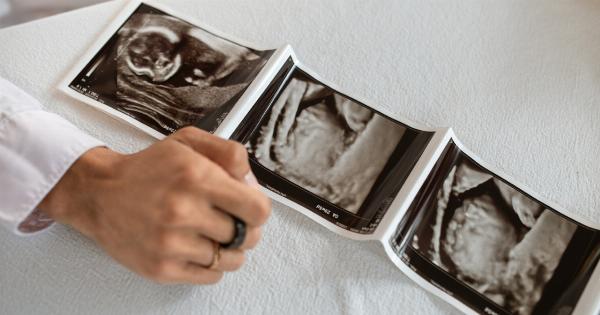Pregnancy is a beautiful and miraculous journey that brings joy, anticipation, and excitement to expecting parents. However, it can also be a time of immense stress and anxiety.
The physical, hormonal, and emotional changes that occur during pregnancy can sometimes become overwhelming, leading to negative impacts on both the mother’s and the baby’s health.
The Impact of Stress on Pregnancy
Stress is a normal part of life, and a certain amount of stress is even considered healthy as it prepares our bodies to respond to challenging situations.
However, when stress becomes chronic and unmanageable, it can have detrimental effects on our overall well-being, especially during pregnancy.
Understanding Miscarriage
Miscarriage is defined as the loss of a fetus before the 20th week of pregnancy. It is estimated that about 10-20% of known pregnancies end in miscarriage, and this number may be even higher as many miscarriages go undetected.
While the exact causes of miscarriage are often difficult to determine, stress has been identified as a contributing factor.
The Role of Stress in Miscarriage
When a woman experiences high levels of stress, a cascade of hormonal changes is triggered in her body, including the release of cortisol, commonly referred to as the stress hormone.
These hormonal changes can disrupt the delicate balance necessary for maintaining a healthy pregnancy and increase the risk of complications, including miscarriage.
Impact of Stress Hormones on Pregnancy
The release of stress hormones during pregnancy can lead to various adverse effects, such as:.
- Uterine Contractions: Stress hormones can cause the uterus to contract, potentially leading to early labor and a higher risk of miscarriage.
- Reduced Blood Flow: Chronic stress can constrict blood vessels, reducing the blood flow to the uterus and depriving the developing fetus of essential nutrients and oxygen.
- Hormonal Imbalance: Stress disrupts the delicate hormonal balance necessary for maintaining a healthy pregnancy. It can interfere with the production of progesterone, a hormone crucial for supporting pregnancy, leading to the increased risk of miscarriage.
- Increased Inflammation: Stress increases inflammation in the body, which can negatively affect pregnancy outcomes, as chronic inflammation is associated with various complications, including preterm labor and miscarriage.
The Psychological Impact of Stress on Pregnancy
Besides the physiological effects, stress during pregnancy can also have a profound psychological impact on expectant mothers. It can lead to increased levels of anxiety, depression, and even feelings of guilt or blame if a miscarriage occurs.
These emotional responses can further exacerbate stress levels, creating a vicious cycle that is detrimental to both the mother and the baby.
Tips for Managing Stress During Pregnancy
It is crucial for expectant mothers to prioritize their physical and emotional well-being throughout pregnancy. Here are some effective strategies for managing stress:.
- Seek Support: Reach out to loved ones, join support groups, or engage in prenatal classes. Having a solid support system can provide comfort and guidance during this transformative time.
- Practice Relaxation Techniques: Incorporate relaxation exercises such as deep breathing, meditation, yoga, or prenatal massages into your daily routine to help alleviate stress and promote relaxation.
- Exercise Regularly: Engaging in safe and appropriate exercise under healthcare provider’s guidance can release endorphins, improve mood, and reduce stress levels.
- Get Adequate Rest: Prioritize sleep and rest to allow your body to recharge and rejuvenate. Consider creating a soothing bedtime routine to promote relaxation and quality sleep.
- Adopt Healthy Coping Mechanisms: Explore healthy coping mechanisms such as journaling, engaging in creative pursuits, or talking to a therapist or counselor who specializes in pregnancy-related issues.
- Prioritize Self-Care: Take time for yourself and engage in activities that bring you joy and relaxation. This can include hobbies, reading, enjoying nature, or pampering yourself with a warm bath.
- Practice Mindfulness: Be present in the moment and focus on the positive aspects of your pregnancy journey. Mindfulness techniques, such as mindfulness meditation or gratitude practices, can help reduce stress and cultivate a sense of calmness.
When to Seek Professional Help
While stress during pregnancy is common, seeking professional help is essential if you are experiencing severe or persistent stress.
Mental health professionals, such as therapists or counselors with expertise in perinatal care, can provide guidance and support tailored to your specific needs.
The Bottom Line
Stress is an inevitable part of life, but managing it during pregnancy is of utmost importance. The danger of stress during pregnancy should not be underestimated, as it can significantly increase the risk of complications, including miscarriage.
By adopting stress management techniques and prioritizing self-care, expectant mothers can create a healthier and more nurturing environment for themselves and their growing baby.




























